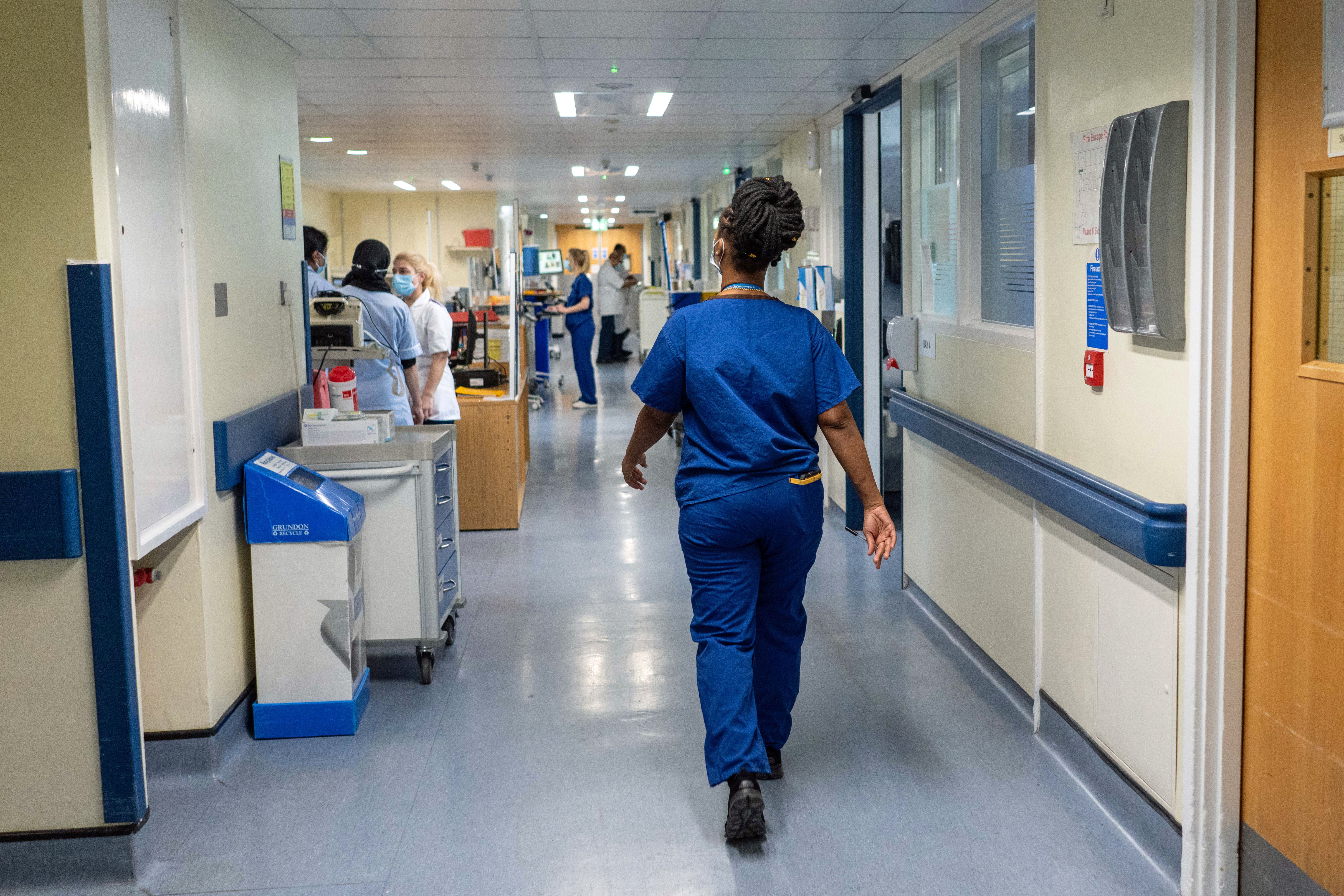Nurses across England begin 28-hour walkout over pay
NHS England warned that staffing levels for some areas of the country will be ‘exceptionally low’

Your support helps us to tell the story
From reproductive rights to climate change to Big Tech, The Independent is on the ground when the story is developing. Whether it's investigating the financials of Elon Musk's pro-Trump PAC or producing our latest documentary, 'The A Word', which shines a light on the American women fighting for reproductive rights, we know how important it is to parse out the facts from the messaging.
At such a critical moment in US history, we need reporters on the ground. Your donation allows us to keep sending journalists to speak to both sides of the story.
The Independent is trusted by Americans across the entire political spectrum. And unlike many other quality news outlets, we choose not to lock Americans out of our reporting and analysis with paywalls. We believe quality journalism should be available to everyone, paid for by those who can afford it.
Your support makes all the difference.NHS services are braced for “exceptionally low” staffing as nurses begin a 28-hour strike over pay.
The strike, ending just before midnight on Monday, comes after a High Court judge ruled it would be unlawful for the industrial action to continue into Tuesday as originally planned.
RCN general secretary Pat Cullen said on Sunday that measures were in place to keep patients safe after concerns were raised on the impact of the strike action on emergency services.
The union initially said it would not agree to derogations – broad areas of care where staffing is guaranteed despite industrial action – but granted some exemptions on Friday in an apparent U-turn.
Great Ormond Street Hospital (GOSH) is among organisations where nurses have agreed to derogations after it voiced “serious concerns” about patient safety during the walkout.
The hospital said it was “incredibly grateful” to RCN members for offering assurances but took the decision not to stand down a “business continuity incident” until it was confident it could staff services during the strike.
NHS England warned that staffing levels in some areas of the country will be “exceptionally low, lower than on previous strike days”.
It added the number of rescheduled appointments due to strike action is set to hit half a million next week.
Health Secretary Steve Barclay has said the 28-hour nursing strike is “premature” and “disrespectful” to other unions.
The comments come ahead of a meeting of the NHS Staff Council, made up of health unions, employers and Government representatives, which will discuss the Government’s 5% pay offer.
“I think this strike is premature and is disrespectful to those trade unions that will be meeting on Tuesday,” he told broadcasters.
But Ms Cullen said there are national exemptions in place for “those really acute urgent services”.
Speaking to Sky News’s Sophy Ridge On Sunday programme, Ms Cullen said: “There are national exemptions in place for a range of services, for emergency departments, for intensive care units, for neonatal units, paediatric intensive care units, those really acute urgent services.
“We have put national exemptions in place, we’ve worked tirelessly with NHS England.
“In fact, it was the Royal College of Nursing who contacted NHS England to ask for a process to be put in place so that we make sure that the strike was safe for our patients.”
She said the strike was going ahead because staffing shortages are putting patients’ lives at risk.
“They’re going on strike because patients’ lives are being put at risk every single day,” Ms Cullen said.
“And why? Because we have tens of thousands of vacant nursing posts.”
Transport Secretary Mark Harper urged the RCN to accept the pay offer for its members.
Mr Harper said: “I would urge them to think again and to do what the other trade unions in the health service have done, which is to accept what I think is a fair and reasonable pay offer, reflecting the value that we do place on hard-working NHS staff.”
Urging the public to use NHS services wisely, NHS England asked those who need non-urgent care to go to pharmacies or dial 111 as their first port of call.
Dame Ruth May, chief nursing officer for England, said: “We are grateful to the RCN for agreeing a process of safety critical mitigations and we continue to support all nurses, those who work and those who take industrial action.
“These mitigations do not represent a return to standard staffing. The industrial action will still have a very significant impact on services during the strike period and patients can expect to see longer waits for care.
“The public should use the NHS wisely, with those needing non-urgent care using pharmacies and 111 online as their first port of call. And if you have a life-threatening emergency, please seek help in the usual way by dialling 999.”
Mr Barclay, writing in Mail Plus, said he echoed NHS leaders’ fears about the impact on patient safety.
“There will be disruption. The NHS will be doing everything possible to mitigate this and will prioritise resources to protect emergency treatment, critical care, neonatal care, and trauma,” he wrote.
Nurses make up a quarter of NHS staff and are the biggest proportion of the health service workforce.